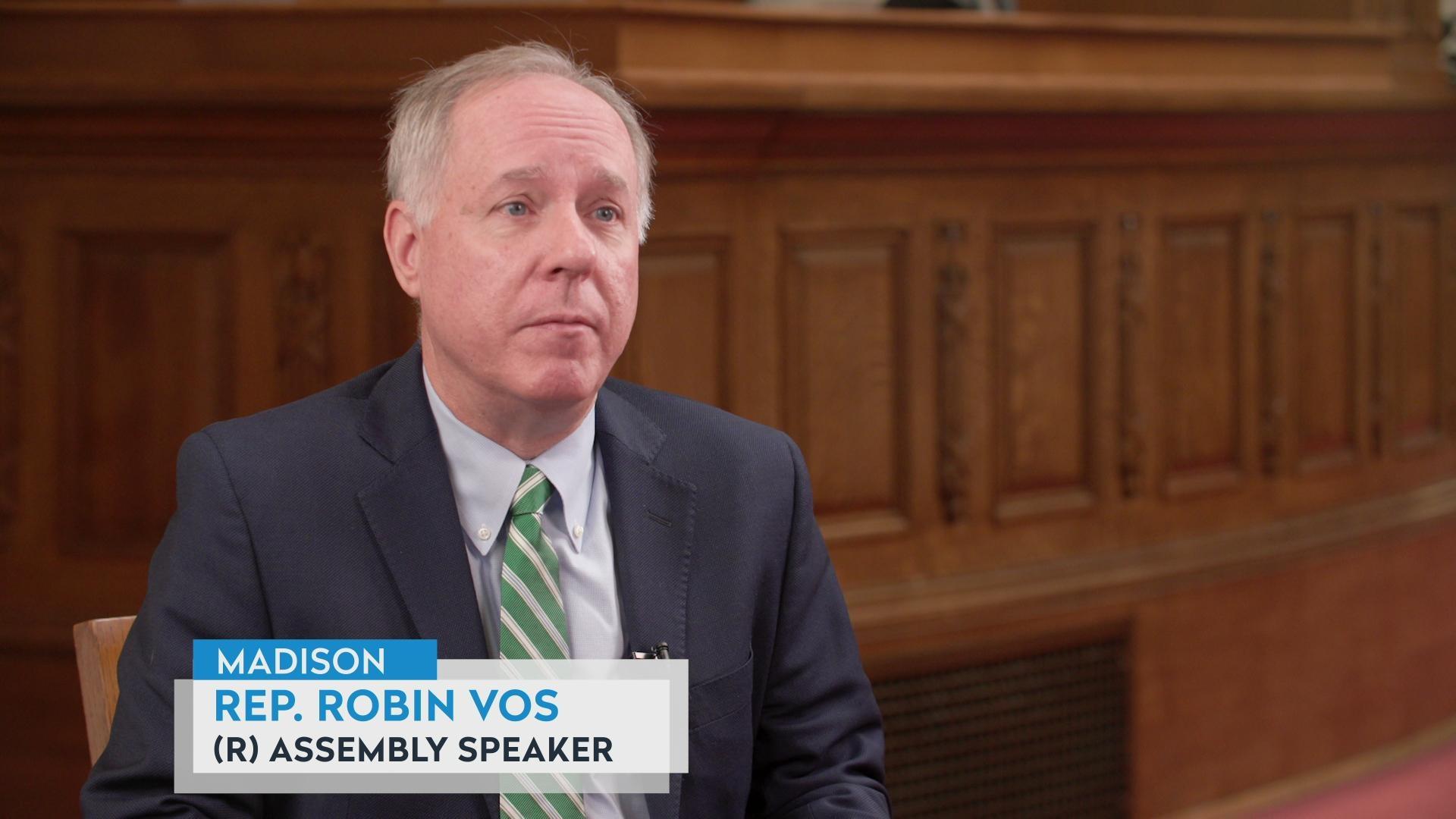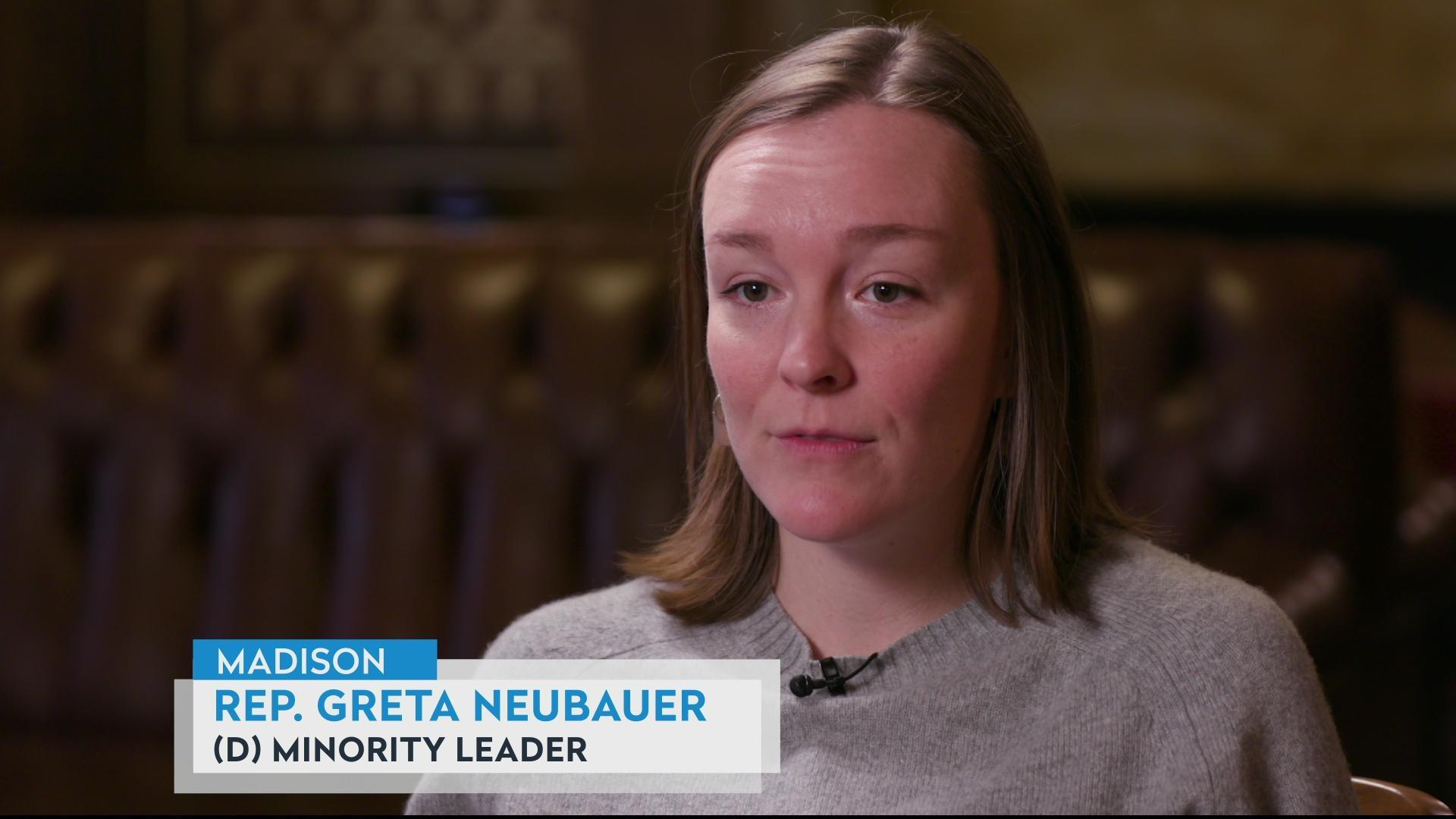Wisconsin Republican lawmaker unveils bill for wide youth social media limits
A bill unveiled by Rep. David Steffen, R-Green Bay, would require social media platforms to verify the age of Wisconsin users, get parental permission for children's accounts, and require data protections for minors.
Associated Press
May 1, 2023

A collage of photos shows logos of Snapchat, TikTok, Facebook and Twitter, in clockwise order from top right. Social media companies would have to verify the age of Wisconsin users and get parental permission for kids to open accounts under a bill unveiled on May 1, 2023, by state Rep. David Steffen, R-Green Bay. (Credit: AP Photo)

MADISON, Wis. (AP) — Social media companies would have to verify the age of Wisconsin users and get parental permission for kids to open accounts under a bill unveiled May 1 by Republican Rep. David Steffen.
The measure would also stop children under 18 from using their accounts between 10 p.m. and 7 a.m., but parents could opt out of all requirements for their child.
Lawmakers across the country have been pushing to limit children’s access to social media. Nearly half of states nationwide have recently banned the popular video sharing app TikTok from state-owned devices, in many instances with bipartisan support. Democratic Wisconsin Gov. Tony Evers banned the app in January.
Steffen announced his plans in April to propose more precautions for all social media platforms.
“Today, social media companies, advertisers, and predators have easy, electronic access to our kids. It has become obvious that this has been at the expense of the health and wellbeing of our children,” he said in an April statement. “It’s our job as parents or guardians to keep our kids safe, but the current online environment has made that nearly impossible.”
Under the bill, which Steffen provided to The Associated Press before circulating for cosponsors on May 1, social media platforms would have 21 days to verify the age of Wisconsin residents with accounts created since 2019 and get permission from a parent or guardian to allow children to access existing accounts or create new ones. Parents would also receive full access to their child’s account.
Platforms that don’t comply with the law could be fined $100 a day for each account in violation.
The bill would also require social media platforms to set protections for minors, including limits on data sharing and advertising for youth accounts.
To pass, the proposal needs approval from both chambers of the Republican-controlled Legislature and then a signature from Evers.
His spokesperson, Britt Cudaback, did not return a voicemail seeking comment on May 1.
Steffen said in a statement that he modeled the measure after a law Utah lawmakers passed in March. Questions have arisen about whether and how that law will be enforced, and it’s likely to face legal challenges. Arkansas lawmakers also passed a bill in April modeled after the Utah legislation that will offer another test of the enforceability of social media limits for kids.
Steffen isn’t the first Wisconsin lawmaker to advocate for increased scrutiny of social media companies. Democratic U.S. Sen. Tammy Baldwin proposed a bipartisan bill in March to allow the Commerce Department to regulate and potentially ban platforms. Republican U.S. Rep. Mike Gallagher, who leads a House subcommittee on China, has criticized TikTok and pushed for more regulation of the app as concerns grow over the platform being used for Chinese surveillance.
Harm Venhuizen is a corps member for the Associated Press/Report for America Statehouse News Initiative. Report for America is a nonprofit national service program that places journalists in local newsrooms to report on undercovered issues.
 Passport
Passport











Follow Us